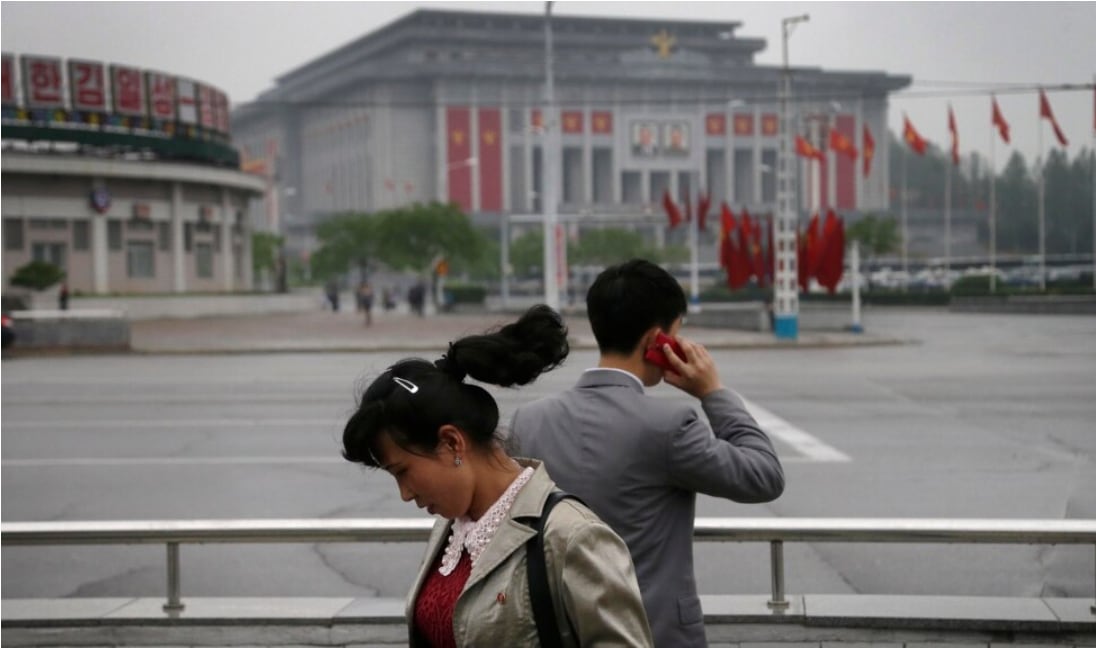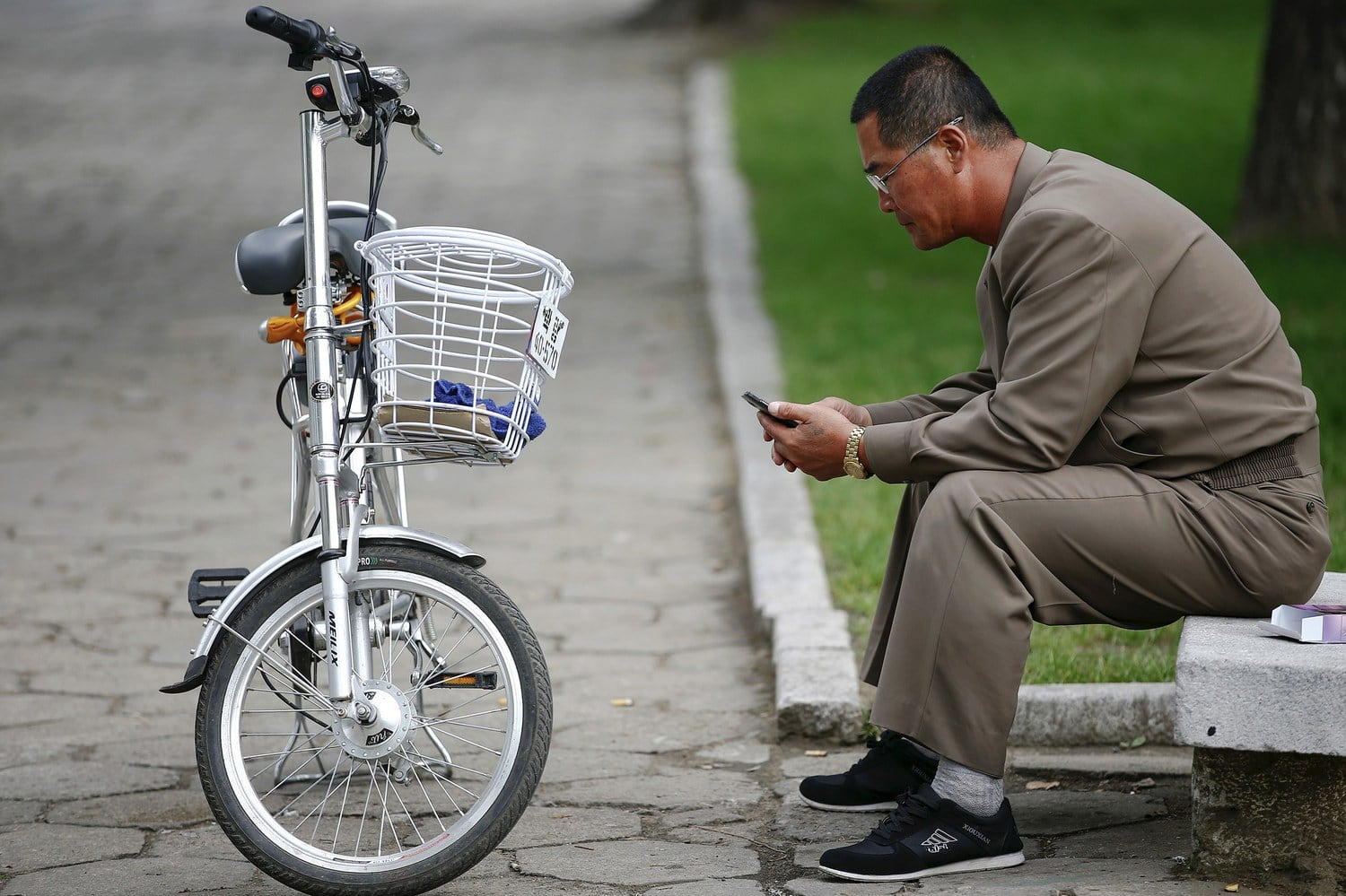SEOUL - North Korean authorities have distributed high-performance handheld radio signal detectors to border security agents as part of an intensified campaign to block residents from making unauthorized phone calls to South Korea, local sources told RFA.
A source in North Pyongan province, speaking on condition of anonymity for security reasons, said officers with the Ministry of State Security in Uiju County near the border with China were issued the new devices last week.
“These portable detectors are designed to track down North Koreans who use Chinese mobile phones to contact family members in South Korea,” the source said.
The brand labels of the devices have been removed and the country of origin is unclear, but the source described them as “high-performance tools with a wide detection range and fast signal capture.”
Although smartphones are available in North Korea, the government maintains strict domestic surveillance by operating a nationwide intranet and keeping the domestic and international phone networks completely separate. For ordinary citizens, making an international call is nearly impossible.
Legal international calls must go through government-monitored operators, allowing authorities to eavesdrop easily. Another exception is the Yanggakdo International Hotel in Pyongyang, where direct international dialing is permitted—but only for foreigners and elite officials.
Because of these restrictions, many North Koreans are unable to contact relatives who live abroad or have defected. In desperation, some residents in border regions pay steep fees to brokers to use Chinese mobile networks—usually while hiding in mountainous areas to avoid detection.
But such calls are risky. Those caught making unauthorized international calls face harsh punishment, including charges of treason and incarceration in labor camps.
Border security
Since supreme leader Kim Jong Un came to power, North Korea has ramped up border security, importing large, German-made radio signal detectors to block the inflow of outside information and prevent leaks of internal news, the source said.
Theoretically, radio signal detectors can identify the source of unauthorized communications by tracing the electromagnetic waves emitted during phone calls. Once a signal is detected, security agents can triangulate the location and track down the user.
In response to government surveillance, many residents have resorted to climbing hills or hiding in remote mountainous areas to make calls via Chinese mobile networks. The new detection devices could make such calls increasingly risky.
The sources who spoke to RFA heard about the new handheld detectors from border guards and say the devices are a major upgrade in both speed and range.
“These are not the same detectors used in previous years,” said the source from North Pyongan. “They can pinpoint the origin of a call far more quickly and across a broader area.”
“The new handheld detectors can be used while moving, and that has people very worried,” the source added.
A second source in the province said that surveillance along the border has intensified, particularly since the COVID-19 pandemic, when North Korea shut down cross-border travel and commerce.
“Security cameras have been installed throughout the border zone. Locals say surveillance is tighter than ever before,” the source said.
The source added that authorities are especially targeting phone calls with relatives who have resettled in South Korea.
“Anyone caught talking about rice prices with family in the South is labeled a spy,” the source said. “The old detection systems couldn’t always pick up these calls because of their limited range.”
Anti-state crimes
Acts such as defection, smuggling, or leaking internal information to the outside world are classified as anti-state crimes in North Korea.
According to a 2024 report by the Korea Institute for National Unification, a think tank funded by the South Korean government, North Korean authorities strictly monitor and harshly punish the possession and use of Chinese mobile phones, typically sentencing offenders to reform through labor or detention in labor training camps. The report also notes that in some cases, individuals who used Chinese phones to contact South Korea were classified as political criminals and imprisoned in political prison camps.
The sources told RFA that the government has distributed the new portable detectors to State Security officials in major border areas, including the city of Sinuiju, which lies opposite the Chinese city of Dandong, the main conduit for China-North Korea commerce.
“Agents in plain clothes now patrol residential neighborhoods and wooded hillsides before dawn, carrying the devices in their pockets to scan for illegal phone signals,” the second source said.
Previously, authorities could only detect unauthorized calls that lasted more than five minutes. The new handheld detectors can identify calls as short as one minute, the source added.
Additional reporting by Jaewoo Park. Edited by Sungwon Yang and Mat Pennington.



